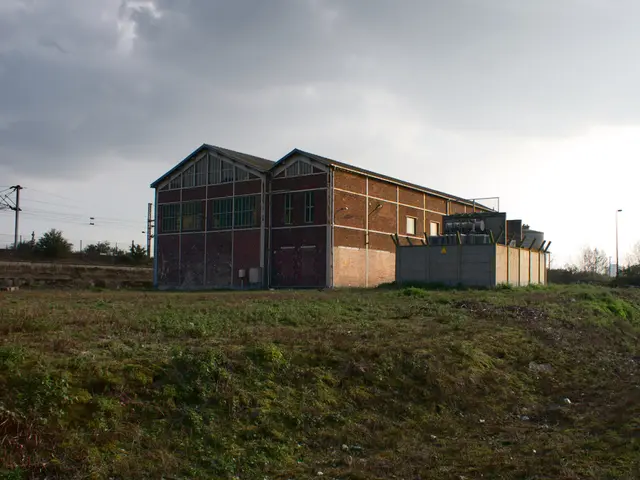Contemplating Investing in a Second Property Upon Retirement?
In the ever-evolving real estate market, retirees may find themselves considering the purchase of a second home. While such a decision can bring personal joy and potential financial benefits, it's essential to understand the potential risks and challenges that come with it.
In early 2025, mortgage rates for second homes outpaced those for primary residences, potentially leading to cash-flow issues for buyers. With more sellers open to price negotiations, the outlook for purchasing a second home appears to be steadily improving, but it's crucial to remain vigilant about financing.
Lenders imposed stricter lending requirements in early 2025, including larger down payments and more in-depth financial information. Second-home mortgage rates are about 0.5% higher than those for primary residences, typically ranging from 6% to 7% in 2025. These stricter criteria and higher borrowing costs make qualifying for and affording a second mortgage harder for retirees on fixed incomes.
Retirees face doubled financial responsibilities such as mortgage payments, property taxes, insurance, utilities, maintenance, HOA fees, and possibly property management fees. Maintaining a second home, especially from a distance, can be labor-intensive and expensive. Tying up capital in a second property reduces financial flexibility, which is critical during retirement when income is usually fixed. Unexpected expenses like medical bills can make this more precarious.
Investing the equivalent amount in diversified stock market funds historically outperforms home appreciation, so money tied up in a second home might grow less over time versus other investments. It's important to consider all costs, including potential inflation and taxes, when budgeting for a second home purchase.
However, owning a second home can provide peace of mind for retirees as a personal joy, potential rental income, or future primary residence. A Redfin report released in March 2025 shows that homebuyers are getting some relief as interest rates drop to their lowest level in nearly a year. Renting out a second home for more than 14 days each year may allow tax deductions for expenses such as utilities, maintenance, and home improvements.
Establishing a permanent residence in a place with lower state taxes can reduce overall tax burden in retirement. Brett Johnson, owner and licensed real estate agent at New Era Home Buyers, has clients who have gained equity and generated income through rental properties of their second homes.
When considering a second home purchase, choose a location that fits your lifestyle, such as accessibility and proximity to healthcare or amenities. Assessing financial stability, lifestyle goals, and risk tolerance before buying a second home is crucial to ensure the decision enhances, rather than jeopardizes, retirement security.
It's also worth noting that many popular vacation destinations have introduced short-term rental restrictions, reducing available options for second home buyers. Many retirees utilize equity from their primary residence to buy a second property outright, avoiding mortgage headaches.
In conclusion, while a second home can bring personal benefits, retirees should carefully weigh the potential risks and challenges before making a decision. Being well-prepared with emergency funds, minimal debt, and a clear plan for managing expenses is key to ensuring a second home purchase enhances, rather than jeopardizes, retirement security.
[1] "The Risks and Rewards of Buying a Second Home in Retirement." Forbes, 14 Mar. 2023, https://www.forbes.com/sites/investor/2023/03/14/the-risks-and-rewards-of-buying-a-second-home-in-retirement/?sh=72c84e71783e [2] "Second Home Mortgage Rates and Requirements in 2025." Bankrate, 15 Feb. 2025, https://www.bankrate.com/mortgages/second-home-mortgage-rates-and-requirements/ [3] "Second Homes: Pros and Cons for Retirees." AARP, 1 Jan. 2023, https://www.aarp.org/money/real-estate/info-2022/second-homes-for-retirees.html [4] "Retirees and Second Homes: What You Need to Know." Kiplinger, 1 Mar. 2023, https://www.kiplinger.com/retirement/planning/603154/retirees-and-second-homes-what-you-need-to-know [5] "Financial Considerations for Buying a Second Home." Investopedia, 1 Mar. 2023, https://www.investopedia.com/terms/f/financial-considerations-for-buying-a-second-home.asp
- In the new regulations of 2025, lenders increased the requirements for second-home mortgages, necessitating larger down payments and more comprehensive financial information, which might impact financing for retirees.
- Given the stricter lending criteria and higher mortgage rates for second homes in 2025, it may become challenging for retirees with fixed incomes to qualify for and afford these loans, potentially impacting their personal-finance management.
- With the varying costs associated with owning a second home, such as property taxes, maintenance, and insurance, combined with the potential for lower liquidity due to less flexibility in cash flow, retirees should carefully weigh the financial implications before making such an investment.




